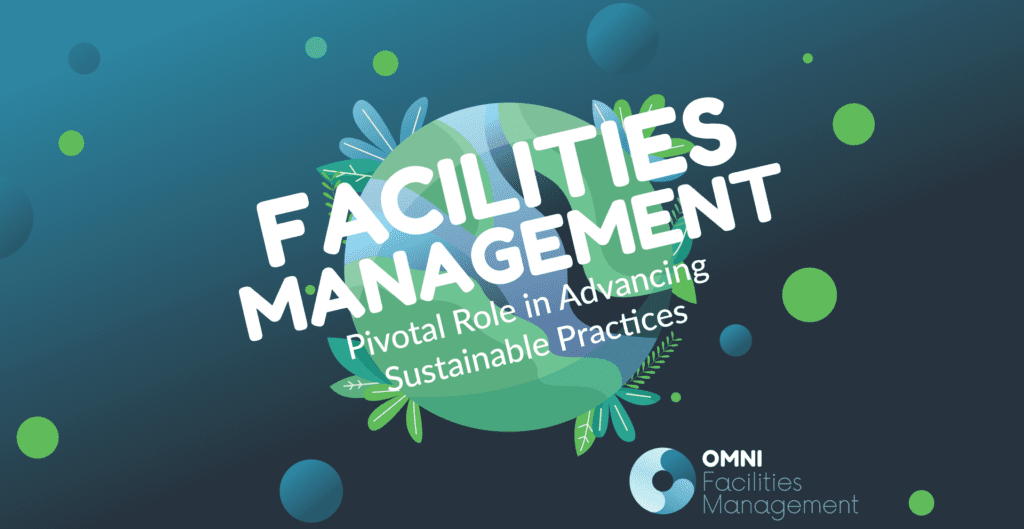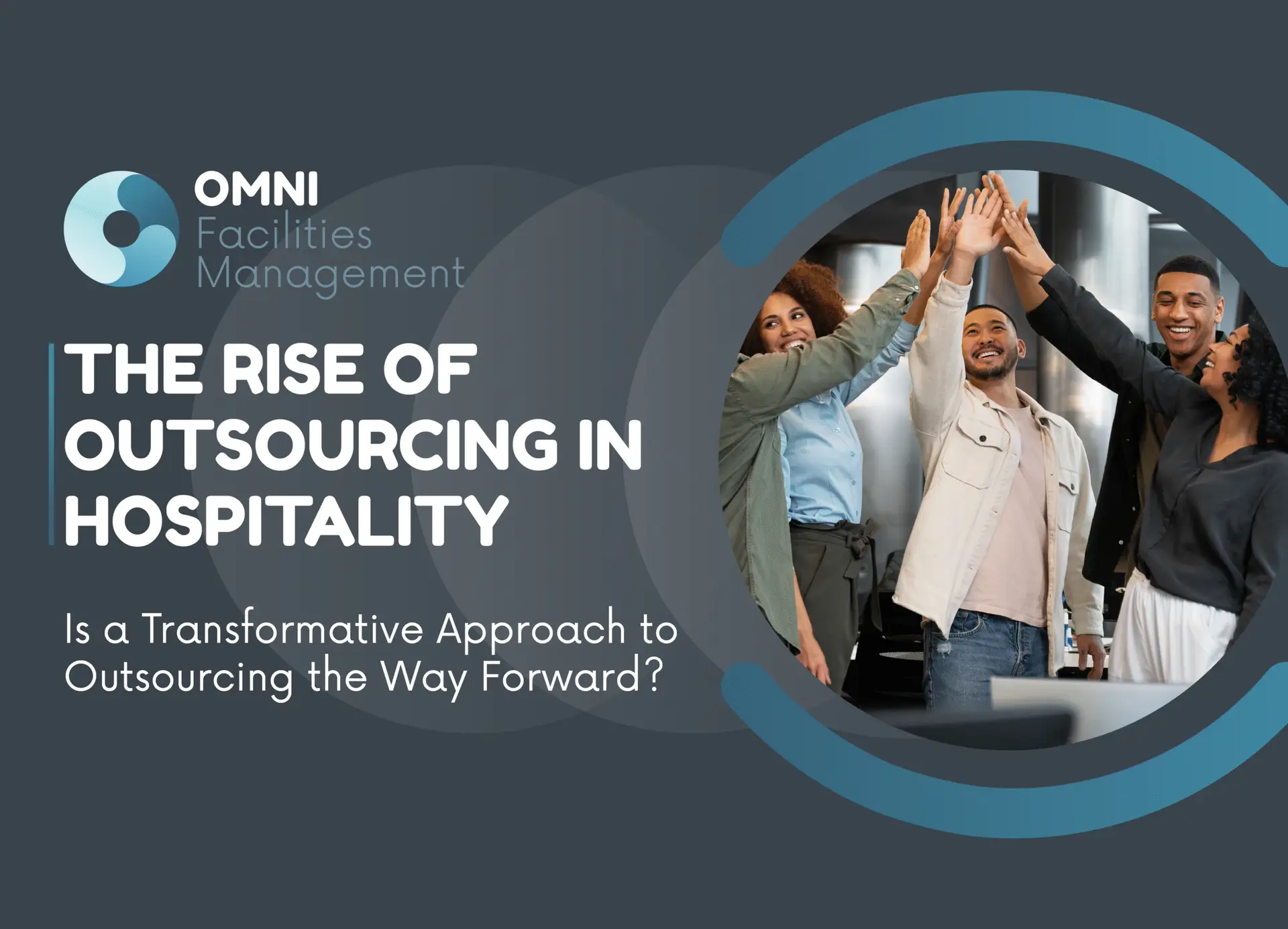Insight by, Jade Voice, Director of HSE, Omni Group
For many companies, the most daunting and intricate aspect of adhering to the sustainable development agenda is effectively integrating sustainability principles into their strategic planning across various timeframes.
Sustainability has emerged as a pivotal element in shaping the future of the Facility Management (FM) industry. As stewards of significant built environment resources, facility managers profoundly influence operational efficiency, resource use, and environmental impact. Integrating sustainability within facility management is not merely a response to environmental concerns but a strategic imperative that enhances operational viability, compliance, and market position.
As companies within the facilities management (FM) sector strive to enhance their sustainability initiatives, it becomes increasingly apparent that being unprepared to develop a coherent corporate sustainability vision, strategy, and framework poses a significant risk. The absence of a well-defined approach can lead to an inability to implement effective, sustainable solutions or even comprehend the initial steps necessary for such endeavours.

The World Economic Forum has underscored the pivotal role that sustainability will assume in the coming years, emphasising the necessity of embedding it at the core of corporate strategy. This strategic integration is desirable and essential to address various external pressures and expectations. Stakeholders increasingly prioritise sustainable practices, urging companies to demonstrate environmental responsibility as a marker of long-term viability.
As per EY, a strategy focused on sustainability should cultivate an improved environment and a more substantial, more robust business. To accomplish this, senior leaders must blend the skill of developing excellent strategies with a thorough comprehension of how sustainability elements will alter business success or failure. Integrating sustainability with strategy development represents the next stage in both evolutions.
As FM organisations strategise for the 2030 net zero target, they must balance authenticity and purpose, particularly within the facilities management (FM) sector. This industry must not only propose solutions but also embody these solutions through its operations and practices. Authenticity ensures that initiatives are driven by profit and genuine commitment to sustainable and ethical practices. By doing so, the FM sector can provide long-term value to its stakeholders, who increasingly demand transparency and accountability in corporate operations. Delivering this promise requires thoughtful integration of sustainable practices into everyday business operations, reinforcing stakeholder trust and enhancing the industry’s reputation.
As the FM industry continues to expand its sustainability initiatives, these efforts must be firmly anchored in the intrinsic value of creating long-term growth and value creation. This endeavour should benefit the industry and its various stakeholders, including clients, employees, and the broader community in which FM companies operate. Pertinent to sustainability being a key driver, it must be seamlessly integrated into supporting overarching business objectives to ensure that environmental considerations align with corporate strategy.
A 2024 survey conducted by Morgan Stanley examining the influence of sustainability and decision-making on businesses revealed that sustainability is increasingly becoming a part of all crucial company functions. Most respondents (55%) indicated that sustainability criteria are considered in significant business decisions. It is evident that sustainability is entering boardroom discussions, although directors might require further expertise. These survey findings indicate that sustainability is becoming a standard business factor.
Although significant progress has been achieved in advancing sustainability within the FM industry, senior leaders must predominantly shoulder the responsibility. It is imperative that these leaders possess a comprehensive understanding of the associated risks, opportunities, and impacts that sustainability initiatives entail. Senior leaders are tasked with developing a clear and strategic plan complemented by specific metrics tailored to their sustainability efforts. This systematic approach involves setting precise performance targets or metrics critical for assessing progress and effectiveness over time.
In a 2024 article, Deloitte surveyed senior leaders worldwide and discovered that many emphasised the importance of establishing accountability and transparency with stakeholders and creating a framework to assess the effectiveness of climate initiatives over short-, medium-, and long-term periods. They also highlighted the need to improve oversight and monitoring of their sustainability efforts. The focus is on embedding climate strategy into business strategy, recognising that climate action is a primary concern rather than an additional or secondary topic.
The FM sector must transcend traditional boundaries to integrate sustainability into corporate strategy across all company functions effectively. By adopting strategies that leverage market, technology, customer, and regulatory trends driven by sustainability imperatives, the industry can uncover new value sources that drive positive growth for all stakeholders and the environment. Senior leaders must prioritise these sustainability factors as they will significantly influence business success or failure. Fusing sustainability with strategic development represents a pivotal evolution for both fields. Embracing this integration will enhance operational effectiveness and ensure long-term prosperity in an increasingly eco-conscious landscape.




